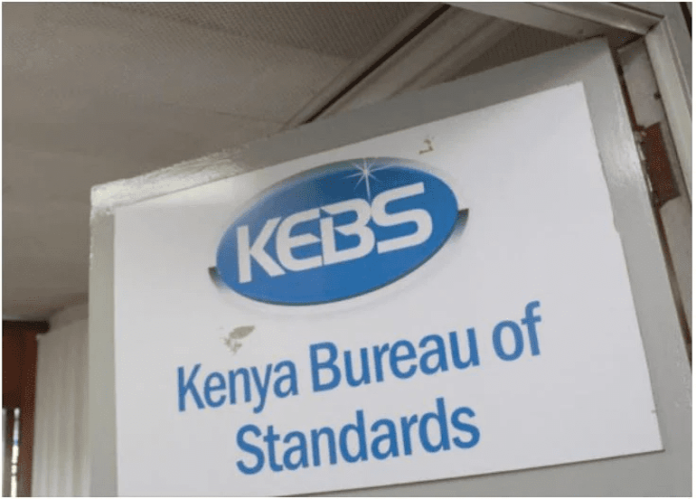The Kenya Bureau of Standards (KEBS) has officially addressed the controversy surrounding a condemned sugar consignment, denying claims that the product was maliciously declared toxic and re-entered the market.
KEBS insists its decisions were grounded firmly in scientific assessment and regulatory procedures, not political manipulation.
The consignment in question was imported in 2018 and later condemned by KEBS due to missing expiry and manufacture date labels rendering it non‑compliant with Kenyan standards and unsafe for consumption.
KEBS directed that the sugar be either reshipped or destroyed at the importer’s expense, in line with statutory mandates under the Standards Act.
Subsequent calls arose over allegations that the sugar carried dangerous toxins like mercury. However, KEBS Managing Director Charles Ongwae clarified in Parliament that no traces of mercury were detected during laboratory testing.
Instead, the sugar samples revealed elevated copper levels approximately 20.7 mg per kg, far above the permissible 2 mg limit, which poses serious health risks such as liver and kidney damage if consumed in large quantities.
KEBS further stressed that it operated under a legally mandated multi-agency team (MAT) framework when overseeing the conversion of condemned sugar into ethanol.
This process involved coordination with the Kenya Revenue Authority (KRA) and the National Environment Management Authority (NEMA).
The agency underscored that its role included sealing the containers, overseeing sample testing, and ensuring the sugar was used exclusively for industrial ethanol production not diverted to the retail market.
Despite this, the consignment was later traced to local shops and repackaged for sale prompting public outrage and parliamentary scrutiny. KEBS responded with countrywide market surveillance, seizing over 52 tonnes of substandard sugar from approximately 300 outlets. The seized product is still under laboratory analysis prior to final disposal decisions.
KEBS pointed to the lengthy timelines permitted under current laws for condemned goods handling, which they argued create loopholes allowing illicit diversion.
They highlighted that delays between condemnation, conversion, or destruction can open opportunities for misappropriation a flaw they say grew worse without clearer procedural deadlines.
In response to political allegations, KEBS asserted that certain accusations lacked technical basis. Staff testimony during court proceedings emphasized that many of the condemned consignments had passed moisture, microbial, and yeast/mould tests and were inherently safe when used industrially not observed to contain toxic heavy metals or microbiological contaminants.
In summary, KEBS insists that its involvement in the saga was consistent with legal responsibilities, founded on evidence-based lab inspection, and transparent oversight.
The bureau reaffirmed its commitment to further strengthening standards enforcement, accelerating condemned goods processes, and ensuring future coordination with relevant regulators to prevent misuse of potentially harmful imports.
Written By Ian Maleve



















